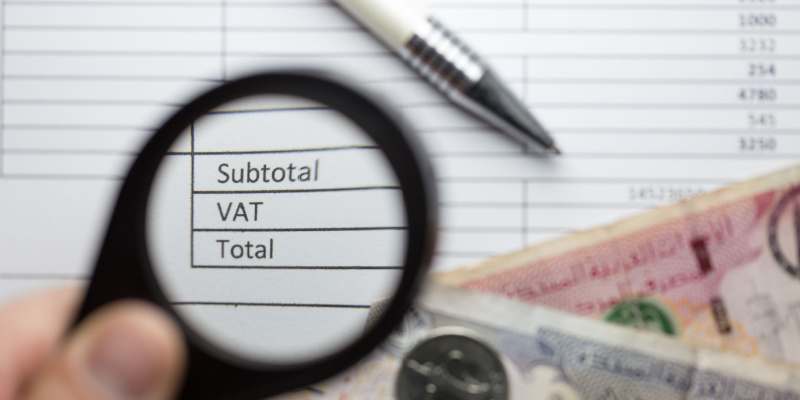
+971 58 539 7665

+65 9616 5641

+91 78994 42930

Many foreigners are attracted to the UAE because of the country's tax structure, or rather, the absence of taxes. Employees, for example, do not have to pay income tax, and neither do corporations nor heirs.
Until the beginning of the year 2018, there was absolutely no VAT. This sales tax was imposed at a comparatively modest rate of 5%. Energy drinks and cigarettes are two examples of the types of items that are subject to an additional tax known as an excise tax. This tax is charged because the government believes that these products pose a threat to both human health and the environment.
Many companies seek the guidance of tax advisory services to stay well-informed of the latest changes, which is a sensible thing to do, given how intricate this tax system can be.
Let’s explore the details.
UAE residency visas are a legitimate way to minimize tax liabilities.
Income Tax
Income in the UAE is not taxed. Since there is no personal income tax in the United Arab Emirates, residents are exempt from filing a tax return. The same holds true for those who call the Emirates home yet are self-employed or engaged in freelance work.
Individual Tax
Workers who are citizens of the Gulf Cooperation Council ( including UAE) are required to pay 17.5% to the UAE's social security system. Employees who are not citizens of the United Arab Emirates pay 0%, while the employer covers the remaining 12.5%. Employees of enterprises and branches located in a free trade zone (FTZ) are likewise subject to social security requirements. Residents in other GCC countries may be required to make various social security payments than citizens of their native country. In contrast, non-GCC citizens are not required to pay into the UAE's social security system.
Corporate Tax
Only oil firms and international banks are subject to corporate taxes in the United Arab Emirates. However, firms operating in one of UAE’s 45 free trade zones are not subject to taxes for an initial and extendable period of time. Gains on investments are not subject to taxation unless the corporation is subject to another kind of income tax.
Beginning in 2023, enterprises with a net income of AED 375,000 or higher will be subject to a new federal corporate tax of 9%.

Double taxation
The United Arab Emirates (UAE) is actively working to extend its network of Bilateral Investment Treaties (BIT) and Double Taxation Agreements (DTA) in an effort to foster strategic global collaborations. Direct and indirect taxes on investments and earnings are either completely or partially waived or reduced due to the approximately 193 DTAs and BITs that the UAE has achieved.
Property transfer tax
In the United Arab Emirates, real estate transfers are subject to transfer fees. This is different in each Emirate. In Dubai, it is 4%. Despite the fact that both the seller and the buyer are responsible, the transfer fee is typically paid by the buyer.
Inheritance tax
There is no system in place to collect inheritance taxes. In the absence of a will, inheritance is handled as per Islamic Shari'a rules.
Tourist facility tax
The following are examples of taxes that may be charged at places like restaurants, resorts, and hotels:
Fortius offers outstanding Business Consulting and CFO Services to businesses in Dubai, the UAE, Singapore, and India. With the finest services and the strongest solutions, we assist businesses to achieve increased profitability, improve internal processes, increase management capability, regulate strategies, and elevate the business to global standards.
Free trade zones
UAE free-trade zones feature separate tax, customs, and import laws. Emirates has almost 40 zones. Within these specific zones, firms are free from corporation tax for 50 years and export and import taxes are 100% exempted.
Tourism fees per Emirate
Each hotel room in Dubai will cost you between AED 7 and AED 20 per night, regardless of how long you plan on staying there. This varies by hotel rating. Abu Dhabi adds 4% and AED 15 each night, each room to hotel bills. Ras Al Khaimah restaurants levy a $15 tourist fee each night.
Rental tax
Emirates has different rent taxes. In Dubai, residential renters pay 5% of their yearly rent and business tenants 10%. UAE nationals don't pay property tax in Abu Dhabi, while expats do (3%). Sharjah's renters pay 2%.
In the UAE, there are two types of taxes that are imposed on products and services: value-added tax and excise duty.
VAT
Value-added tax in the Emirates is 5%. Some things are VAT-exempt. In 2020, the UAE exempted certain COVID-19 personal protective equipment, including masks, gloves, disinfectants, and antiseptics. Additionally, the following products and services are exempt from VAT:
Excise Tax
In 2017, the UAE introduced an excise tax. The government imposes this indirect tax on products it deems to be hazardous to the environment or public health. These are the types of goods that are subject to the tax:
Tariffs
For most commodities, customs charges are 5% of the CIF value. Certain categories are exempted, but alcohol and cigarettes carry 100% customs duties.
Also Read : Tax Auditing in UAE- How Important is It?
Many residents of the United Arab Emirates (UAE) may be without employing an accountant since they are exempt from paying income tax.
However, people who run more substantial enterprises would be well to seek out unbiased financial guidance of tax advisory services on the subject of corporate tax obligations. If you need help with tax advisory, don't hesitate to get in touch with Fortius Consulting Services, which is widely regarded as one of the most reputable business consulting services.
